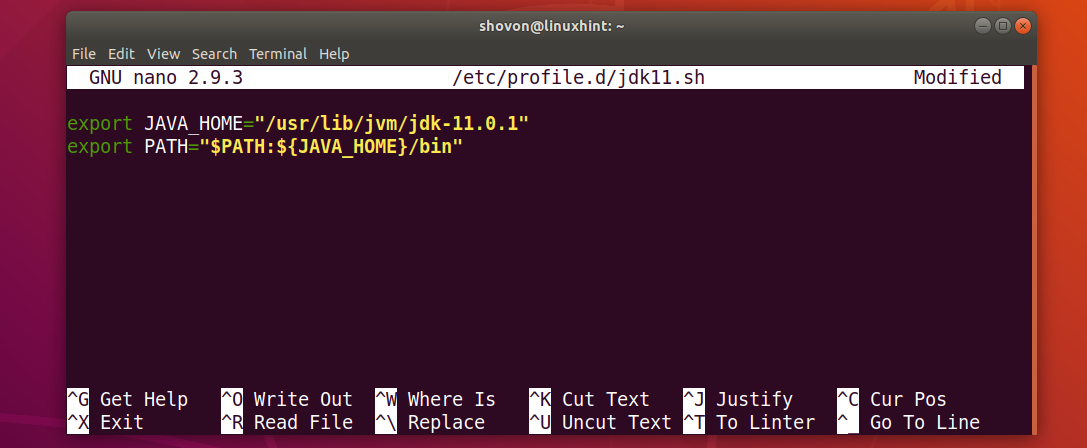
Sudo apt install oracle-java11-set-default-local Use the command below to install oracle-java11-set-default-local, which makes Oracle JDK 11 default:

On Debian, add the PPA and install the oracle-java11-installer-local package using:Įcho "deb focal main" | tee /etc/apt//linuxuprising-java.listĪpt-key adv -keyserver hkp://:80 -recv-keys 73C3DB2AĪpt-get install oracle-java11-installer-localĦ.

Sudo apt install oracle-java11-installer-local Sudo add-apt-repository ppa:linuxuprising/java Add the Linux Uprising Java PPA (it works on Ubuntu, Linux Mint, Pop!_OS, elementary OS, and any other Ubuntu based Linux distribution) and install the oracle-java11-installer-local package to set up Oracle Java 11: Purge the old oracle-java11-installer package if you had it installed:ĥ. Sudo mkdir -p /var/cache/oracle-jdk11-installer-local/ tar.gz to this folder.įor example, create the /var/cache/oracle-jdk11-installer-local/ folder and copy jdk-11.0.3_linux-圆4_ to this folder (from the current directory) using: Create a /var/cache/oracle-jdk11-installer-local/ folder, and copy the Oracle JDK 11. Right now, the version in the PPA is 11.0.13.ģ.

Make sure the Oracle JDK version you're downloading is the same as the oracle-java11-installer-local package version. tar.gz archive (scroll down to reach the Oracle Java 11 downloads). Create an Oracle account at and sign inĢ. These are step-by-step instructions for installing Oracle Java 11 using the new "oracle-java11-installer-local" package:ġ. How To Install Oracle Java 14 (JDK14) On Ubuntu, Debian Or Linux Mint From APT PPA Repository.Install The Latest OpenJDK 12, 11 or 8 in Ubuntu, Debian or RHEL Using Zulu OpenJDK Builds.Or better yet, switch from Oracle Java to OpenJDK or some other JDK build, since Oracle now uses a commercial license, and you can only use Java at no cost for development and testing, but it requires a fee to use it in production. I recommend removing it, and using the new oracle-java11-installer-local package. I will delete the old oracle-java11-installer package since it no longer works.

If you can think of a better way, please let me know! This was the only way I could think of to work around the fact that Oracle now requires users to create an account and login to download most Oracle Java versions. jinfo file and update-alternatives, but also export the JAVA_HOME environment variable, etc.). You can install the oracle-java11-set-default-local package to set Oracle Java 11 as default for example (not only set it as default using a. I recommend you install that instead.Įverything else works as before. ] Oracle Java 17 is the latest LTS, and it was released recently.



 0 kommentar(er)
0 kommentar(er)
